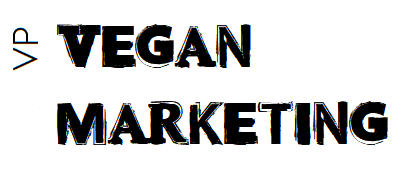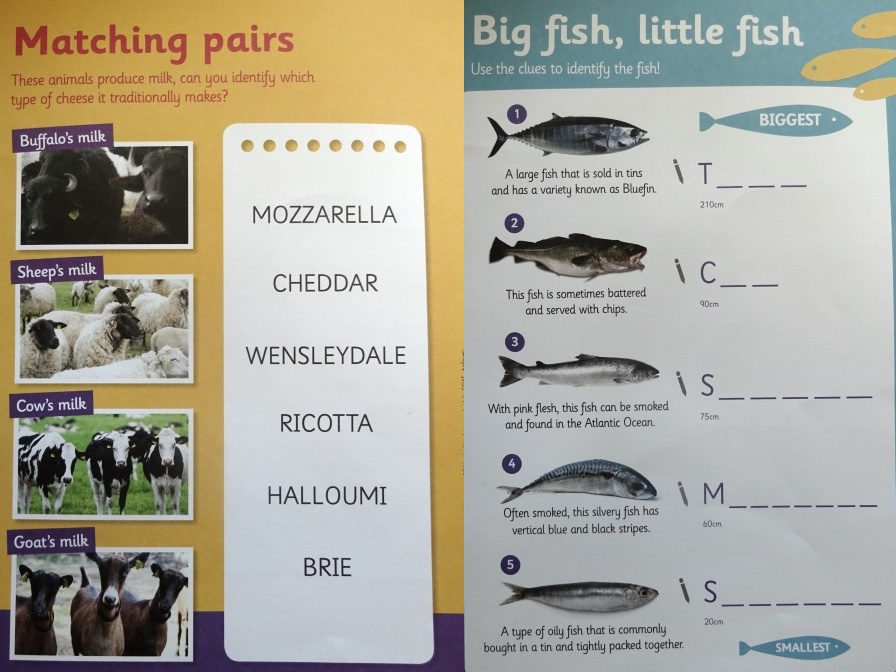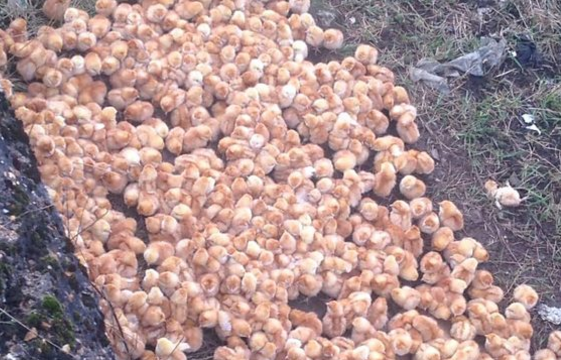UPDATE July 2019: Since this article was written in 2015, Packham has adopted a plant-based diet (in early 2019) and intensified his activism against the shooting industry. The speciesist attitudes he previously held, as quoted and discussed in this article, may have evolved during the last few years too. I hope they have evolved, as I do respect the anti-shooting work Packham is doing and the personal risk involved in this work.
If you had to name a famous animal lover, BBC presenter and conservationist Chris Packham would probably come somewhere near the top of the list. As well as having presented animal TV programmes since the late 1980s, he’s been a prominent figure in the movement against the ongoing culling of badgers and an outspoken critic of foxhunting and the persecution of hen harriers.
The chief executive of the Countryside Alliance even recently called for Packham to be sacked by the BBC for using the corporation as “a platform from which to promote an animal rights agenda”, and accused him of being “a disciple of the animal rights movement”.
In a new interview with The Guardian however, Packham strives very hard to disassociate himself from so-called ‘animal rights extremists’. Whilst mulling over the Countryside Alliance’s accusations that he is an ‘animal rights extremist’, he admits that he doesn’t have any problems whatsoever with animals being killed – and that only those who ‘take pleasure’ in killing should be condemned:
Packham says: “To me, it has to have a psychopathic element, if you’re taking pleasure from killing things, just for that pleasure. If you’re going to eat it, if you’re culling an animal that is otherwise damaging the environment because it’s too abundant, I have no problem with killing animals.”
Packham’s belief that it’s OK to kill animals to eat puts him entirely at odds with the vast majority of the so-called ‘animal rights movement’.
He “only minds some forms of shooting: driven grouse shooting; woodcocks, which are on a very fast decline; hen harriers, which are a protected species”. He thinks that it’s perfectly acceptable to kill an animal so long as it’s not a protected species, if the animal’s corpse is eaten, and to ‘control’ a supposedly over-populated species.
Someone who loves animals, however, opposes the killing of any animal – regardless of its species or whether its corpse will be eaten. The killing of a sparrow is of no less moral significance than the killing of a woodcock; the brutal slaughter of a cow no less a tragedy than the murder of a badger.
Unlike Packham, a true animal lover can never accept that the killing of animals for food is acceptable. Humans do not need to eat meat to be healthy, and so killing animals for food is both physically and morally unjustifiable. Packham is pescetarian – he eats fish and other seafood – and not vegan or vegetarian.
[UPDATE: Chris Packham took part in Veganuary 2019 and is an ambassador for the charity. He has since adopted a nearly entirely plant-based diet, though continues to eat honey].
His own dietary decision to abstain from meat suggests, however, that he believes its consumption is unnecessary for good health. If he thinks eating meat is unneccessary for health reasons, then he should oppose the killing of animals for food.
Killing animals for pleasure is unquestionably repugnant. Packham agrees, but it becomes apparent that he is only opposed to certain forms of hunting – specifically, ‘bloodsports’ such as foxhunting and ‘driven’ grouse shooting (which means hunts where grouse are driven towards the shooters by beaters). There is however no moral distinction whatsoever between killing a grouse during an organised, driven shoot, and killing one whilst shooting birds alone in a forest. Both are unneccessary acts of violence which kill animals who have a right to life and who do not want to die. Astonishingly, Packham even praises the owners and managers of ‘wildlife friendly’ farms, where ‘game’ bird shooting takes place.
Packham is naive if he thinks that only hunters participating in recognised bloodsports like foxhunting and driven grouse shooting are motivated by pleasure. There’s plenty of evidence that participants in non-organised hunts enjoy killing animals; I’ve personally witnessed people shooting birds in a wood and cheering with delight when they shot one. Packham’s selective opposition to certain forms of hunting makes absolutely no logical sense, as all forms of hunting are morally indefensible.
Packham himself confirms that he is not anti-shooting and that the shooting that “vexes” him is only “the illegal kind”.
The legality of an action, however, does not make it morally right – the ‘illegal’ shooting of a hen harrier is no less morally justifiable than the ‘legal’ shooting of a pheasant. Both killings are immoral, as both birds have a right to life and neither wanted to die. If Packham applied his stance on legal killings to the culling of badgers then he would be in support of the cull, as the shooting of badgers has been legally sanctioned by the highest judicial body in the country, the High Court. Packham’s statement also contradicts his position on driven grouse shooting, because driven grouse shooting is entirely legal.
An animal lover would not be so ready to support, as does Packham, the culling of an animal which is “damaging the environment because it’s too abundant”. Packham has in the past singled out deer and American mink as targets for potential culls, even suggesting that “a creative partnership between the conservationists and the shooting fraternity” might carry them out. A lover of animals – deer and mink, as well as badgers and hen harriers – would surely champion humane alternatives to culling, rather than proposing animals be shot, and by the ‘shooting fraternity’ (some of who will probably be the very driven grouse shooters and foxhunters whose pleasure in killing Packham apparently finds so abhorrent).
At the end of his interview with The Guardian, Packham muses on the relationship between humans and animals, contemplating that:
“If I were to say, for instance, there was a parity of importance between myself and something living out in the woods, people wouldn’t understand that because we’re conditioned culturally and socially to think that we are the most important thing.”
Packham’s sentiment is laudable, but from his statements it’s hard to believe that he accepts a parity of importance between different species of non-human animals, let alone such a parity between humans and non-human animals.
image: Paul Williams, under Creative Commons Attribution-NonCommercial 2.0 licence





He’s stupid, a fool. I cannot ascertain anything consistent, cogent or logical in that mishmash above.
There is no room for ambiguity when it comes to animal welfare, animals are farmed…there is nothing natural about that. If you have the slightest concern for animals, you do not fucking eat them.
I agree with Melissa B and Billy W. Chris is a good guy, with the natural planet and animals at the forefront of his heart and mind. To me he seems like someone who sees the bigger picture as opposed to being obsessed with individual animal rights (though he campaigns for this also). He’s an avid supporter of the natural world and a truly passionate, kind, intelligent and interesting human being.
The BBC has just released a documentary recently which helps to give an understanding of how and why Chris can be just so passionate, and his life managing his Aspergers syndrome.
Well said the above! And shame on Denmark for their cruel and horrific mistreatment of farmed animals, Denmark hang your evil head in shame!
I don’t eat meat and feel a better human being! Killing animals for food is mindless!